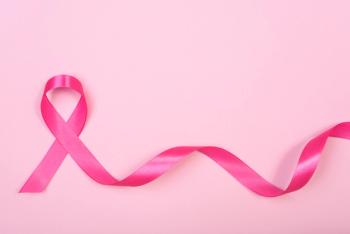
Breast Cancer Awareness: Is the Message Getting Blurred?
At 30,000 feet, breast cancer awareness is probably not the first thing on an airline passenger’s mind. But Delta Airlines is trying to change all that. Delta’s “Force for Global Good” is offering $2 glasses of pink lemonade to customers and donating all proceeds to The Breast Cancer Research Foundation (BCRF).
At 30,000 feet, breast cancer awareness is probably not the first thing on an airline passenger’s mind. But Delta Airlines is trying to change all that. Delta’s “Force for Global Good” is offering $2 glasses of pink lemonade to customers and donating all proceeds to The Breast Cancer Research Foundation (BCRF).
“Our customers and employees share equal passion about this cause and our commitment to help raise awareness and find a cure for breast cancer,” says Katie Connell, a senior manager at Delta Airlines. “Since 2005 Delta employees and customers have raised more than $400,000 for BCRF through donations, as well as the sale of pink lemonade onboard and pink products.”
While the intentions are clearly philanthropic and good, passengers are reminded that for an extra $3 they can add alcohol to their lemonade. Despite the fact that Delta Airlines is not officially promoting the consumption of alcohol or adding the money from alcohol sales to their fundraising efforts, flight attendants are making the offer. Since heavy drinking is an established risk factor for breast cancer, the message of awareness might be blurred.
“On two recent flights, I was struck by the irony of breast cancer prevention messages being immediately followed by a reminder that you could add alcohol to the drink,” said Richard Schmitz, director of communications, for the Society for Women’s Health Research. “One flight attendant delighted at suggesting over the speaker system that you could add vodka to make a pink martini of sorts. I think it is a mixed message.”
Recent studies have confirmed that alcohol is indeed a risk factor for breast cancer, and that consuming more than three drinks per day can significantly raise the chances of getting breast cancer.
A study by Kaiser Permanente presented at the European Cancer Conference in September found that women who consume more than three drinks a day face a 30 percent increase in breast cancer risk compared to women who consume less than one drink a day. Women who drank one or two drinks a day had a 10 percent increase in breast cancer risk.
These results could be confusing because several well-publicized studies also have indicated that consumption of wine protects against heart disease. Women may assume that choosing wine is healthier than beer or hard liquor, but for breast cancer risk, it really comes down to the amount of alcohol consumed, rather than the type.
“The risk is present for any type of alcohol,” explains Patrick Maisonneuve, M.D., chairman of epidemiology at the European Institute of Oncology in Italy.
Alcohol seems to be an underestimated risk factor for breast cancer and the exact mechanism of how alcohol contributes to the development of breast cancer is not fully understood. Many studies suggest that hormones could be involved.
According to Maisonneuve, “alcohol may elevate levels of estrogen, prolactin and other hormones potentially associated with a higher breast cancer risk.” Heavy consumption of alcohol may activate this mechanism, placing women who drink on a regular basis at higher risk for breast cancer.
“I think the efforts of Delta and other companies to raise awareness of and money for important health conditions should be applauded,” Schmitz said. “I just want to make sure that women are mindful of the health risks they face and the factors that can increase those risks.”
According to the American Cancer Society, aside from alcohol consumption, other risk factors for breast cancer include:
- Age
- Family History
- Early menarche (before age 12)
- Late menopause (after age 55)
- Being overweight or obese
- Not having children or having them later in life
- Previous chest radiation
Women should get an annual mammogram starting at the age of 40. Women at high risk should speak with their health care provider for additional guidelines.
References:
Sources
Collaborative Group on Hormonal Factors in Breast Cancer. Alcohol, tobacco and breast cancer collaborative reanalysis of individual data from 53 epidemiological studies, including 58,515 women with breast cancer and 95,067 women without the disease. British Journal of Cancer (2002) 87, 1234-45.
Li, Y., Baer, D., Friedman, G.D., Udaltsova, N., and Klatsky, A.L. Wine, liquor, beer, and risk of breast cancer. European Journal of Cancer Supplements, v. 5, n. 4, p. 161. Presented at the European Cancer Conference, Sept. 23-27, 2007.
© October 12, 2007
Newsletter
Get the latest clinical updates, case studies, and expert commentary in obstetric and gynecologic care. Sign up now to stay informed.









